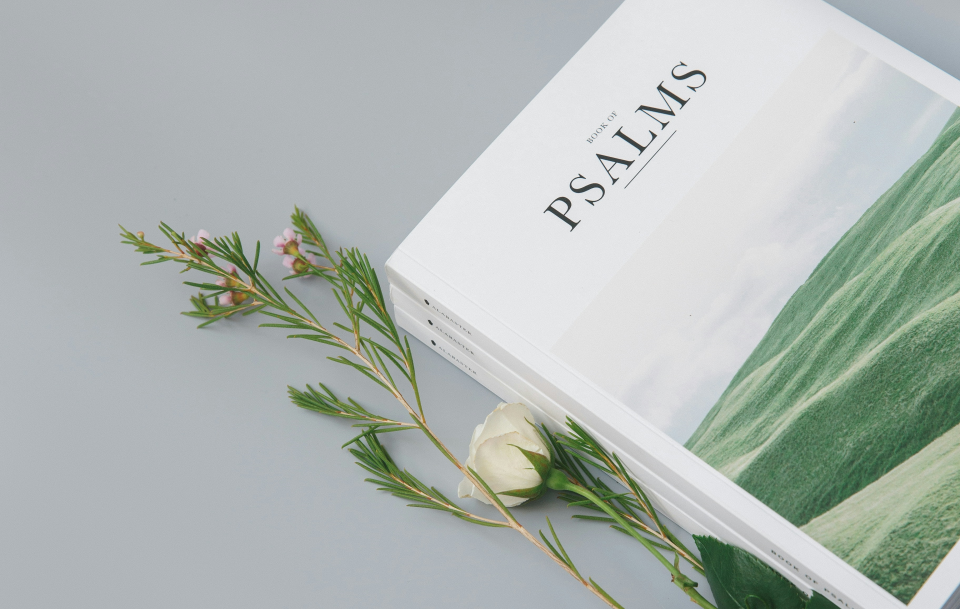I’ve been a big fan of listening to different voices read different translations of chapters and books of the Bible for a long time, and I often ask my students to do the same.
This semester I asked students in my course on the Psalms to listen to the entire Book of Psalms, which takes about five hours, twice. I suggested that one of the listening experiences should feature women reading the Psalms, as in Her Bible, a recording of the book of Psalms that includes the voices of eight different women. I also suggested that students listen to the Psalms in their own mother tongues. I knew that this experience would deepen students’ knowledge of the Psalms as they heard the sad laments alongside the glad praises and mad curses. I also hoped that they would reflect on the question of the ordering of the Psalms and recognize the book’s overarching story of the failure of human kingship and the reassuring message that God — whose steadfast love endures forever — is also King (Psalm 118). I did not know that this experience would also transform lives.
“I was intensely impacted by the laments,” one woman wrote: “For the first time, a voice I recognized (a female voice like mine), reverberated in accord with my experiences of pain, terror, loss, abandonment, grief, and pathos. The words of this female boomed in my ears, my head, my underbelly, and drudged up from deep within me a naked helplessness and vexation before God. Even when the tone changed to expressions of praise and thanksgiving, my pain could not be so easily assuaged. I felt like a disposable sacrifice within this ritual context of worship, easily dispensable to God. My complete loss of agency identified with the Psalmist’s pathos in the face of hell. But then, so magnanimously plucked out of this loathing stupor, I realized that I am not discarded like rubbish into a filthy bin or sent for slaughter to be sacrificed. Instead, if I am found in hell, God is there with me! (Psalm 139:8) These are not new mind-blowing revelations, but in the hell of life, it’s significant enough to change the course of isolation, and this is a mercy indeed! The impact of hearing the laments from a female voice was beyond an animation, I became legitimized as the interlocutor in this dialogue with God, permitting me to say things I didn’t think were possible. Although the dialogue continues, the purge that occurred was cleansing. I feel free to praise now or to continue in lament, knowing God is already there and therefore, not alarmed by my humanity.
Listening to the Psalms in one’s mother tongue was also transformative for several students. One student who listened to the Psalms in the language of his first lessons about God, faith, spirituality, Jesus, and life found himself connected to his grandparents, who had defiantly read the Psalms in Korean as an act of resistance during the Japanese occupation.
He realized for the first time that the Psalmists’ prayers of deep anguish would have been his grandparents’ prayers, and that the Psalmists’ pleas for God’s intervention would have been their pleas.
“This experience of listening to the Psalms in Korean made me strangely homesick but also has allowed me to connect with God in a more personal and familiar way.”
Similarly, another student listened to the praises, complaints, and imprecatory Psalms in the Yoruba language of his Nigerian grandparents, who speak of Christianity as a white-people religion imposed upon the Yoruba, reminding him that “God’s love and Christ’s sacrifice on the cross has nothing to do with colonialism or Europeanism. Christ’s sacrifice was an act of redemption and love for all nations, cultures, and tribes. Christ’s sacrifice was for all people. All have claim and access to Christ … [God invites] all nations, tribes, and cultures into that wonderful and beautiful dance with the triune God of grace and love. The religion that once seemed inseparable from colonialism and European cultures and values seemed to lose its power and possessiveness as I listened to the Psalms in the Yoruba language.”
Listening to the Psalms changed the lives of these students. I invite you to consider taking this Five-hour Challenge that could change your life too.





